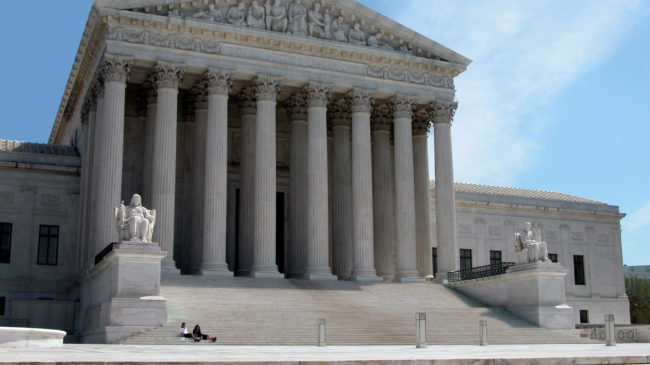The Supreme Court’s recent ruling in Espinoza v. Montana was a huge win for American families and supporters of school choice. The decision paves the way for granting students the freedom to attend religious schools using a state’s tax-credit scholarship funding.
Back in 2018, the Montana Supreme Court ruled that the state’s only private-school choice program was unconstitutional, because families could use tax-credit scholarship dollars to send their children to religious schools. The Supremes reversed that decision in a 5-4 ruling.
The Montana ruling, they held, unconstitutionally prevented families from using program funding to choose religious schools for their kids — a violation of the Free Exercise Clause of the First Amendment. Excluding families from using program funding at religious schools, the majority argued, is discrimination by the government on the basis of religion.
The ruling built on precedent. In a 2002 case, the Supreme Court held that voucher programs can be legally used to pay for religious schools. That’s because the funding goes to families, which can then choose to send their kids to religious or non-religious private schools. It’s the same reason why publicly funded Pell Grants can be used at private universities with religious affiliations without violating the Establishment Clause.
Then, too, Montana’s private-school choice program is privately funded: Tax-credit scholarship funding never ends up in the tax collector’s hands — which means the money headed to religious organizations never crossed the government’s palm in the first place.
So much for the (sound) reasoning. The Supreme Court’s decision means that private-school choice programs are forbidden from discriminating against religious families by excluding religious schools from participation. This has a few important implications.
First, Montana’s tax-credit scholarship program will resume operation. This also means that states like Maine and New Hampshire — which have private-school choice programs that prohibit families from using funding at religious institutions — will now have to allow participating families the choice of sending their children to religious private schools.
This decision also strikes a blow to the discriminatory “Blaine Amendments” found in 37 state constitutions. These amendments, which have often blocked families from using school-choice program funding to send their children to private schools, are rooted in the anti-immigrant and specifically anti-Catholic bigotry of the late 19th and early 20th centuries.
As education scholar Matthew Ladner recently pointed out, “public schools in those days were pervasively religious, but ‘non-sectarian,’ meaning vaguely Protestant.” The Blaine Amendments were therefore used to favor the majority religious group, Protestants, over religious minorities such as Catholics (and Jews), by barring funding to their “sectarian” schools.
Some of American history’s most odious groups, including the Know-Nothings and the Ku Klux Klan, warned of a “Catholic Menace” and even fought to outlaw private schooling altogether in states like Oregon. The Klan, says Ladner, “approved of the curriculum in the public schools and wanted to make sure those Catholic kids became ‘real Americans,’ or in any case, what early 20th-century Klansmen viewed as ‘real Americans.’ ”
Although these groups succeeded in banning private schooling in 1922 in Oregon, the Supreme Court thankfully struck down that discriminatory law in Pierce v. Society of Sisters in 1925, when Associate Justice James McReynolds famously stated that “the child is not the mere creature of the state.”
The Supreme Court’s decision in the Montana case marks another step toward erasing the stain of anti-Catholic hatred written into the laws of many states. Religious liberty, parental rights and educational freedom all won at the court. But the real winners are America’s children.
A version of this column previously appeared in the New York Post.

